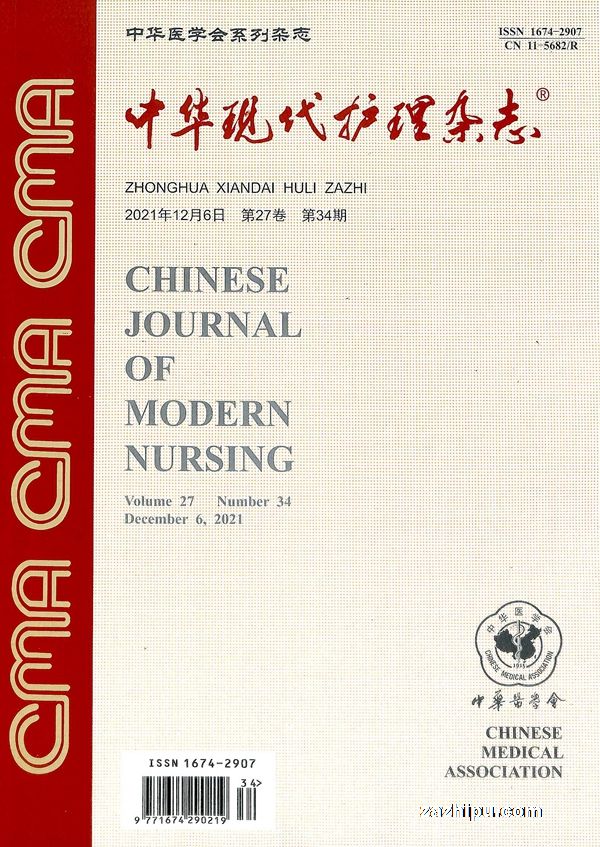Study on consistency of patients with Hodgkin's lymphoma and their families' perception of advance directives
引用次数: 0
Abstract
Objective To explore the consistency of patients with Hodgkin's Lymphoma (HL) and their families' perception of advance directives (Ads) and analyze the influencing factors to their perception of Ads. Methods Totally 107 HL patients admitted in the First Affiliated Hospital of Zhengzhou University from January 2017 to December 2018 and 107 corresponding families were selected using convenient sampling. The demographic information of the patients and families as well as the clinical characteristics of the patients were collected. Kappa test was employed to analyze the consistency of the HL patients and their families' perception of Ads. Univariate and multivariate analyses were used to analyze the influencing factors to their perception of Ads. Results Totally 66.36% (71/107) of the HL patients were willing to formulate Ads, higher than 46.72% (50/107) , the proportion of family members who could comply with the Ads willingness of patients, and the difference was statistically significant (χ2=8.387, P=0.004) . The Kappa value was 0.222, and the consistency of Ads perception among the HL patients and their families was poor. Logistic regression analysis revealed that age, religious belief, bereavement experience, systemic symptoms, and Eastern Cooperative Oncology Group (ECOG) Performance Status were influencing factors for the HL patients to formulate Ads willingness, while religious belief and bereavement experience were influencing factors for the families to follow the patients' Ads willingness. Conclusions There is a difference in the perception of Ads between HL patients and their families, and the selection of Ads by family members cannot fully represent the patients themselves; religious beliefs and bereavement experience are common factors affecting the perception of Ads in HL patients and their families. Key words: Hodgkin's lymphoma; Advance directives; Consistency; Influencing factor; Families霍奇金淋巴瘤患者及其家属对预先指令认知的一致性研究
目的探讨霍奇金淋巴瘤(Hodgkin’s Lymphoma, HL)患者及其家属对医嘱认知的一致性,并分析其对医嘱认知的影响因素。方法选取2017年1月至2018年12月郑州大学第一附属医院住院的107例霍奇金淋巴瘤患者及其家属,采用方便抽样的方法进行调查。收集患者及家属的人口学信息及患者的临床特征。采用Kappa检验分析HL患者及其家属对广告认知的一致性,采用单因素和多因素分析分析其对广告认知的影响因素。结果HL患者中66.36%(71/107)的患者愿意制定广告,高于家属中46.72%(50/107)的患者能够遵守广告意愿,差异有统计学意义(χ2=8.387, P=0.004)。Kappa值为0.222,HL患者及其家属对广告认知的一致性较差。Logistic回归分析显示,年龄、宗教信仰、丧亲经历、全身性症状、ECOG成绩状态是影响HL患者制定广告意愿的因素,宗教信仰和丧亲经历是家属遵循患者广告意愿的影响因素。结论HL患者及其家属对广告的认知存在差异,家属对广告的选择不能完全代表患者自身;宗教信仰和丧亲经历是影响HL患者及其家属对广告认知的共同因素。关键词:霍奇金淋巴瘤;预先指令;一致性;影响因素;家庭
本文章由计算机程序翻译,如有差异,请以英文原文为准。
求助全文
约1分钟内获得全文
求助全文

 求助内容:
求助内容: 应助结果提醒方式:
应助结果提醒方式:


